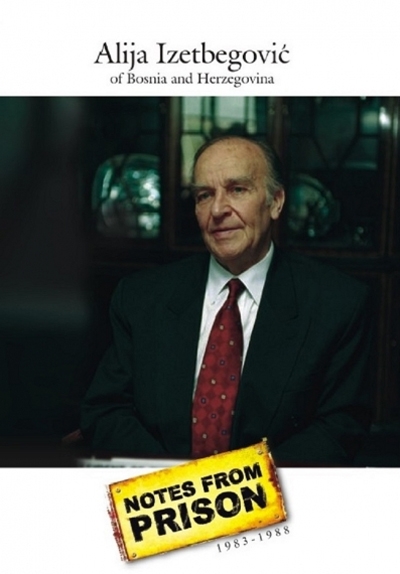



The Serbs’ genocidal war on the Muslims of Bosnia was perpetrated between April 1992 and December 1995. It resulted in the slaughter of more than 350,000 Muslims as well as some 60,000 women raped. Western regimes were complicit in this crime.
While the rise of Russia is seen as a good sign to contain America’s belligerence, on the flip side, Moscow is courting the Serbs in Bosnia threatening the Muslim majority country in the Balkans.
2After a five-year trial, Radovan Karadzic, the Serbian terrorist and mass murderer was sentenced to 40 years in jail for killing 8,000 Bosnian men and children in Srebrenica in July 1995. His other crimes--crimes against humanity and war crimes--were in addition. Most people felt it was not enough. He should have been given at least a life sentence. After all, he got only 1.85 days for each murder. Is that justice?
The long-suffering people of Bosnia-Herzegovina received two items of bad news last month amid grim reminders of the 20th anniversary of the Serbian-led war that had caused 200,000 Bosnian deaths.
The geopolitics of Bosnia Hercegovina, together with its reliance on factors outside its borders, makes Bosnia’s internal policies hostage to external forces. Most states can avoid the necessity of constantly evaluating their every minuscule internal policy against its foreign relations.
Maksud Djavadov, researcher and analyst at the Institute of Contemporary Islamic Thought (ICIT), visited Sarajevo in August 2010 to conduct field research and examine the current situation of Islamic revival there.
The two defendants convicted of genocide were Lt. Col.Ljubisa Beara, 70. A third Bosnian Serb Army officer, Drago Nikolic, 52, was found guilty of aiding and abetting genocide and sentenced to 35 years. Four other defendants were convicted of crimes against humanity and other wartime atrocities...
During the early 1990s, the war in Bosnia dominated Muslim attention much as a war in Iraq has in the last few years, considering which it is perhaps surprising how little of the events of those years is known to many young Muslims today.
On the face of it, Kosova’s declaration of independence from Serbia on February 17 should have been grounds for celebration across the Muslim world. The fact that, a few short years later, Kosova’s declaration of independence, and its recognition by much of the international community, should be greeted with so muted a response among Muslims requires some explanation. As for so much in the Balkans, the explanation lies in history, albeit recent.
As the leading Muslim political spokesman and intellectual, Izetbegovi'c was imprisoned by the Yugoslavian government in 1983 for a 14-year sentence. During the six years he served in prison, Izetbegovi'c wrote notes on life issues, religion and culture, and politics and political philosophy. These reflections were smuggled out of prison and edited for publication along with a selection of letters from his family. After describing prison life, Izetbegovi'c has organized his reflections into sections. From his first note When I lose the reasons to live, I shall die, Izetbegovi'c provides a provocative collection of reflections that will interest scholars and researchers of contemporary Balkans, European Islam, and life during the last days of Communist Yugoslavia. (Courtesy: Ezania; Cover: Other Books, India)
1Almost two months after the US began its bombing of Afghanistan, the Taliban remain defiant in substantial parts of the country. As we go to press, the Northern Alliance and the US are claiming to be about to capture the northern town of Kunduz...
The recent ethnic wars and crises that have ravaged the Balkans over the last few years are a reminder of the complexity of a region where past enmities and unsettled grievances, as well as thwarted national aspirations and traumas, retain their powerful presence, often hidden behind the artificial carapace and boundaries of the modern nation-State.
Conference Papers to be updated.
Conference Papers to be updated.

